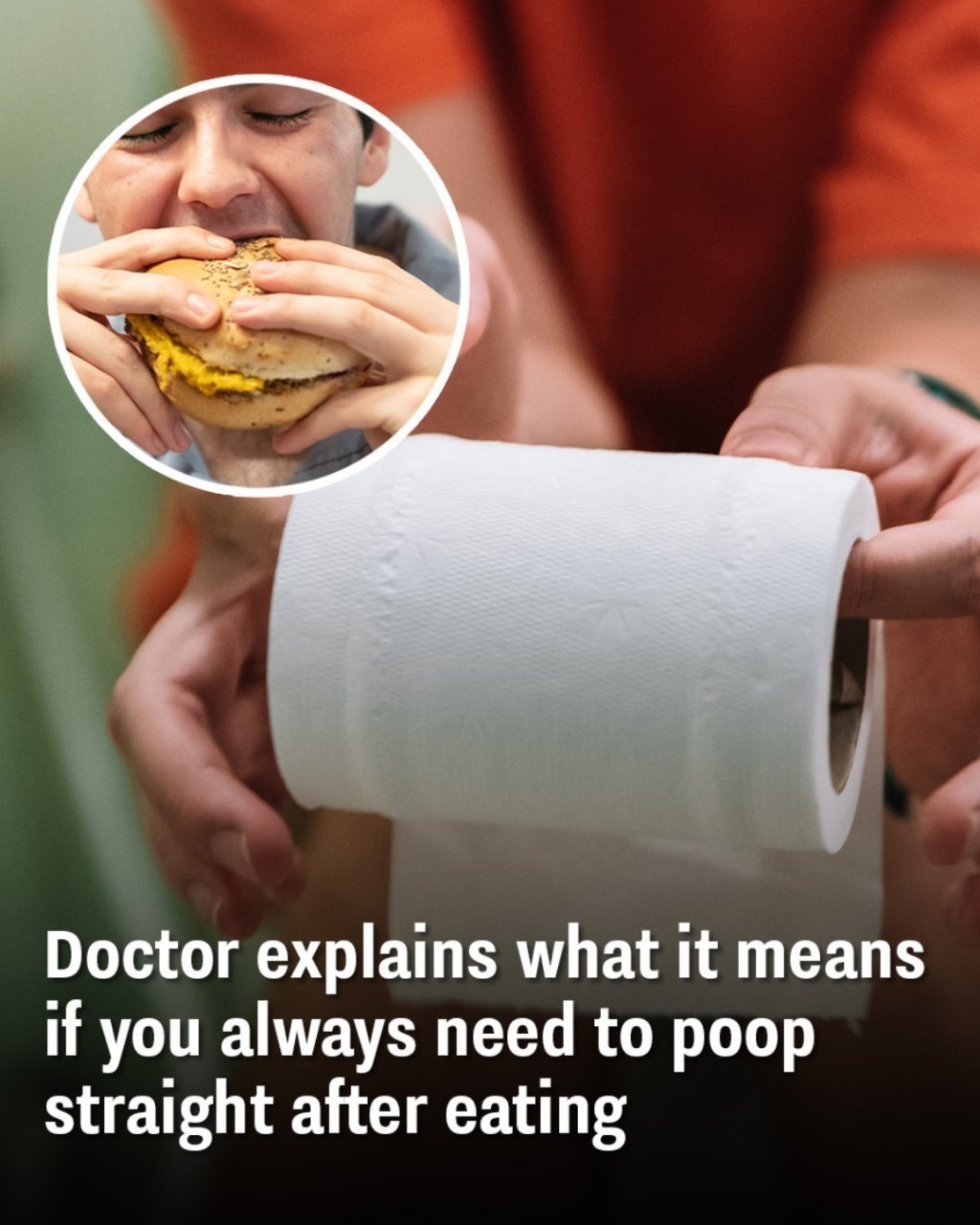ADVERTISEMENT
Title: What It Means if You Always Need to Poop Right After Eating – A Doctor Explains
Have you ever noticed the strong urge to visit the bathroom right after finishing a meal? While it’s not something people often talk about, it’s a common experience for many. But if you find that you frequently need to poop immediately after eating, it might leave you wondering if this is a normal bodily response or something you should be concerned about. Well, you’re not alone—and there may be a reasonable explanation for it.
In this article, we’ll explore why this phenomenon happens, possible underlying causes, and when it might be time to see a doctor. From simple digestive processes to more complex medical conditions, there’s a lot to understand about why you might experience this urgency to go right after eating.
Understanding the Gastrocolic Reflex
The most common explanation for feeling the urge to poop shortly after eating is a natural bodily response called the gastrocolic reflex.
What is the Gastrocolic Reflex?
The gastrocolic reflex is a physiological reaction that occurs when food enters your stomach and stimulates the colon to move. This reflex is part of your body’s digestive process and is responsible for signaling the urge to defecate shortly after eating. Essentially, when food reaches the stomach and starts to be processed, your colon is triggered to make room for more by moving the contents already there, which can lead to the sensation of needing to poop.
The gastrocolic reflex varies from person to person. For some, it’s more pronounced and can lead to a stronger, more immediate urge to visit the bathroom after meals. The intensity of the reflex can also be influenced by the type and volume of food you eat. For example, fatty, spicy, or large meals can stimulate this reflex more strongly.
Is It Normal?
For most people, needing to poop after eating is perfectly normal. It’s just your body’s way of making room for the new food. However, if this sensation is very frequent or accompanied by other symptoms, it could indicate something more than just a reflexive action.
When to Be Concerned?
While occasional trips to the bathroom after eating are common, persistent or disruptive urges may signal an underlying condition. Here are some factors to consider if you’re worried about frequent or urgent bowel movements after eating:
1. Irritable Bowel Syndrome (IBS)
Irritable Bowel Syndrome is a chronic condition that affects the large intestine and is characterized by symptoms like stomach cramps, bloating, diarrhea, and constipation. One of the key signs of IBS is frequent bowel movements right after eating, especially after meals that are rich in fat or fiber. If you notice that your symptoms are accompanied by discomfort, bloating, or changes in stool consistency (like diarrhea or constipation), it’s a good idea to consult with a doctor to discuss your symptoms and explore potential treatments.
2. Food Intolerances or Sensitivities
Food intolerances or sensitivities, such as lactose intolerance or gluten sensitivity, can also cause you to experience frequent bowel movements right after eating. If you find that you consistently have this urge after consuming specific foods, such as dairy or gluten-containing products, it might be helpful to eliminate these foods from your diet temporarily and track your symptoms. A healthcare professional can help you determine if you have a food sensitivity or intolerance that could be contributing to your digestive issues.
3. Infections or Digestive Disorders
Certain infections, like food poisoning or gastroenteritis, can cause a sudden and urgent need to poop after eating. If you experience diarrhea, vomiting, or fever along with the urgency, it could indicate an infection that requires medical attention. Additionally, digestive disorders like Crohn’s disease or ulcerative colitis can lead to frequent bowel movements, especially after eating. These conditions often cause inflammation in the digestive tract and can lead to other symptoms like blood in the stool or severe abdominal pain.
4. Stress and Anxiety
Believe it or not, stress and anxiety can have a significant impact on your digestive system. When you’re stressed, your body releases hormones like cortisol, which can trigger digestive symptoms. The “fight or flight” response can stimulate the digestive system and cause a need to rush to the bathroom. If you notice that your need to poop after eating is more pronounced during stressful times, it might be a psychological factor influencing your digestive process.
5. Overeating or Eating Too Quickly
Sometimes the urge to poop after eating can be as simple as overeating or eating too quickly. Large meals or eating without taking the time to chew properly can place extra stress on the digestive system. This can cause your body to speed up digestion in an attempt to process the food more quickly, leading to an increased need to empty your bowels shortly after eating.
For Complete Cooking STEPS Please Head On Over To Next Page Or Open button (>) and don’t forget to SHARE with your Facebook friends
ADVERTISEMENT
